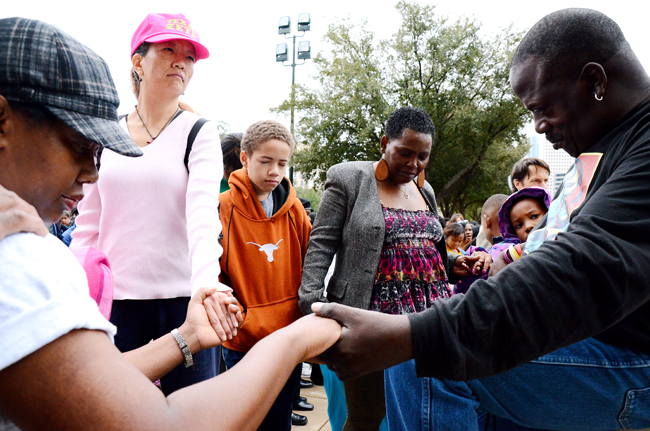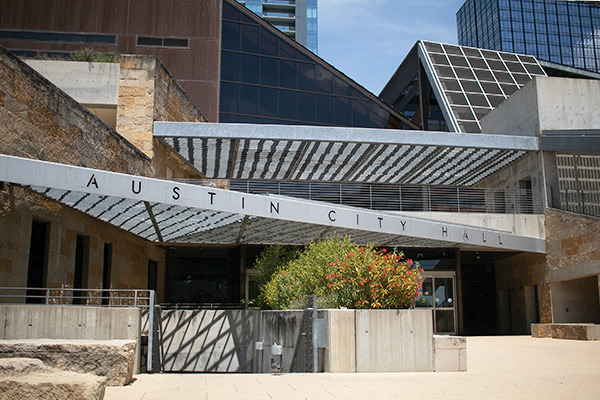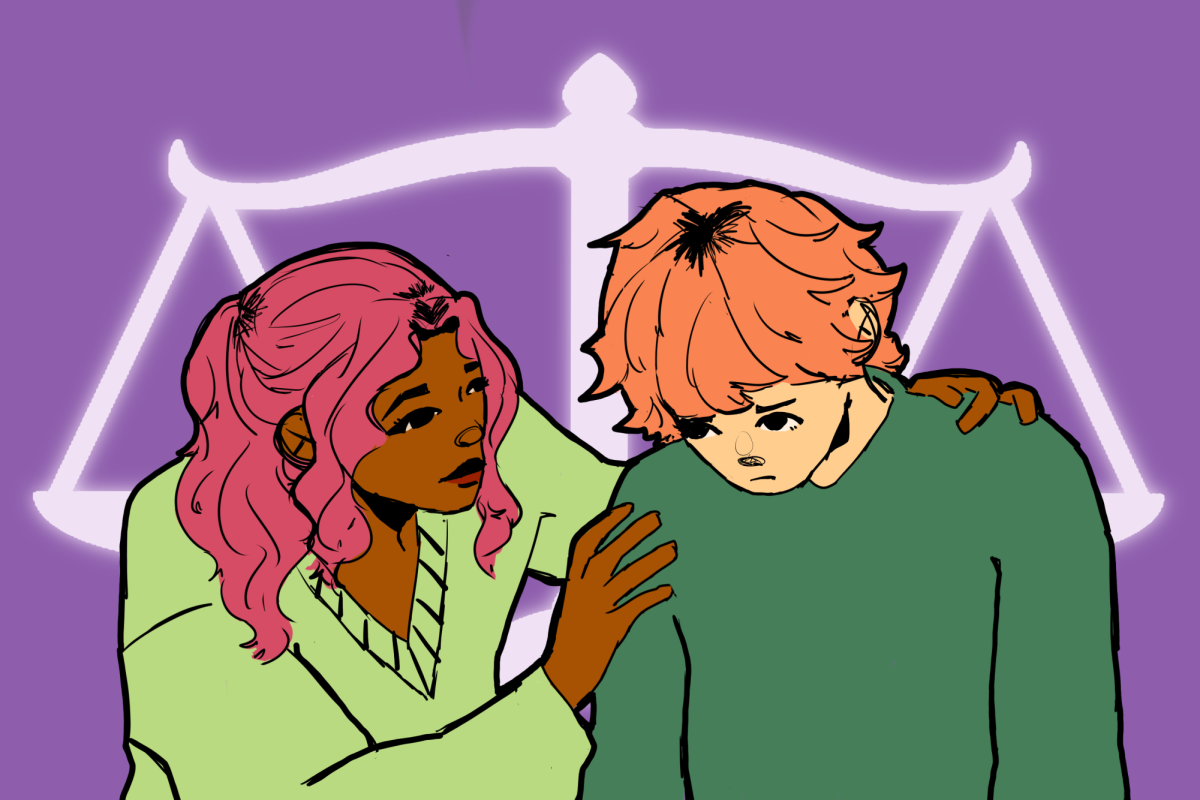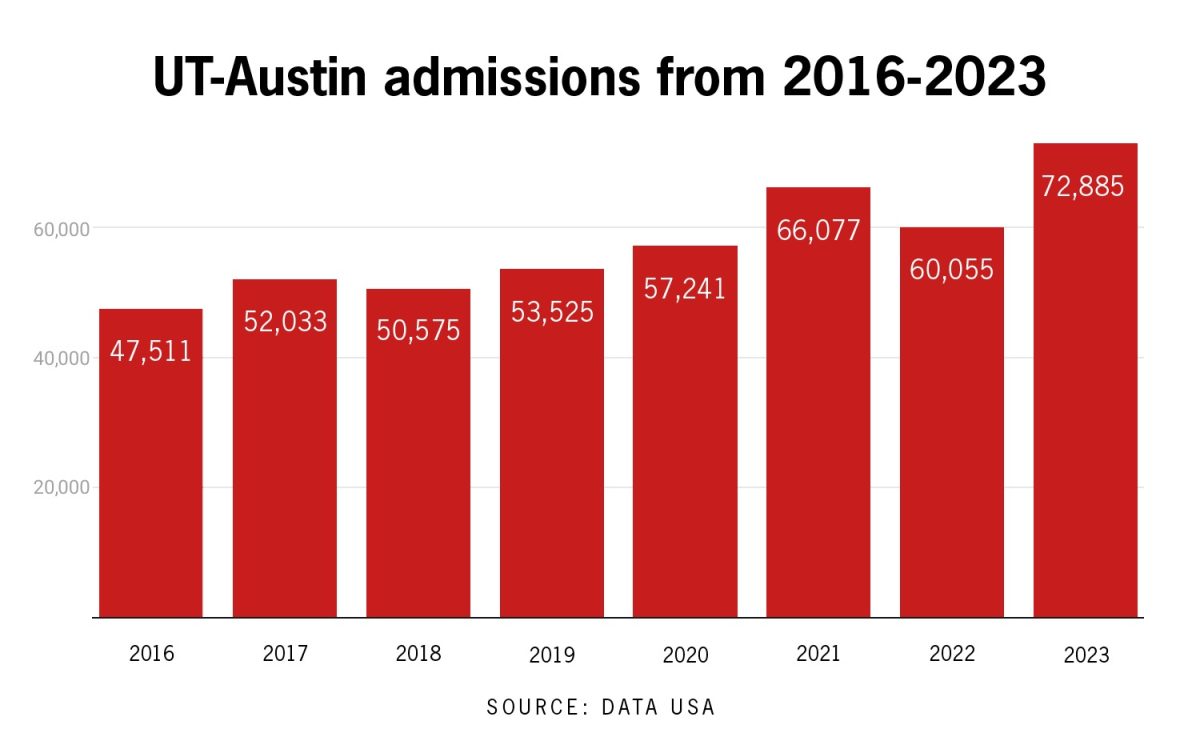Although progress has been made in the 43 years since his death, activists still pursue Rev. Martin Luther King Jr.’s dream of racial equality as Austin residents celebrated his life and work Monday at an annual march.
The city of Austin’s 19th Annual MLK Community March on Monday morning saw an estimated 15,000 people travel from the East Mall to the Capitol and finally to historically black Huston-Tillotson University in celebration of the life and works of Martin Luther King Jr. The civil rights leader’s teachings of nonviolent protest and civil disobedience helped bring civil rights to the forefront of the political agenda, ending institutionalized segregation.
U.S. President Ronald Reagan signed Martin Luther King Jr. Day into law in 1983 as the third Monday in January, the same year that students in the African-American culture committee at UT created the Annual MLK Community March, said UT march coordinator Brenda Burt.
“It was a student initiative, and our students decided that they wanted to honor King by having a march, and it’s been going on for 29 years,” Burt said. The march began with an opening address by Burt and President William Powers Jr., followed by an address by Edmund T. Gordon, department chair for the African and African Diaspora Studies Department. The marchers then traveled to the Capitol where participating gospel choirs performed, and then to Huston-Tillotson University where the performances of local bands were combined with an oral history of MLK’s push for de-segregation in Austin.
Austin was one of the first cities to embrace Martin Luther King Jr. Day, which was not celebrated in all 50 states until 2000. This displays Austin’s highest values, said Austin mayor Lee Leffingwell, who took part in the march.
“The march reflects well on Austin’s values, that we respect what Dr. King did and that we are proud to recognize and honor his accomplishments,” Leffingwell said. “In many if not most social issues, students have led the way, and UT is no exception.”
Monday’s march also displays the values of UT, which continue to demonstrate Martin Luther King Jr.’s legacy to this day, said Powers.
“Dr. King’s achievements resonate among all Americans but we see it quite visibly here on our campus,” Powers said. “We are not at the end of our journey, but we’ve come a long way and I think celebrating Dr. King on campus is particularly important because today is not just a celebration, but a re-dedication to the values of Dr. King.”
This is a particularly important day, given the continuing inequality of wealth in the United States, said Gordon.
“MLK would not be content with a mere celebration on his birthday,” Gordon said. “He believed nothing would be done until people put their bodies and souls into motion, and the uneven distribution of wealth is reaching historic proportions.”
Austin resident Karalin Joyce shared that belief. She said she participated in the march to honor the traditions of Martin Luther King Jr.“We don’t have equality, we just have this pretty picture that everything is better,” Joyce said. “Racism is still there. We’ve come a long way, but we have a long way to go.”


















